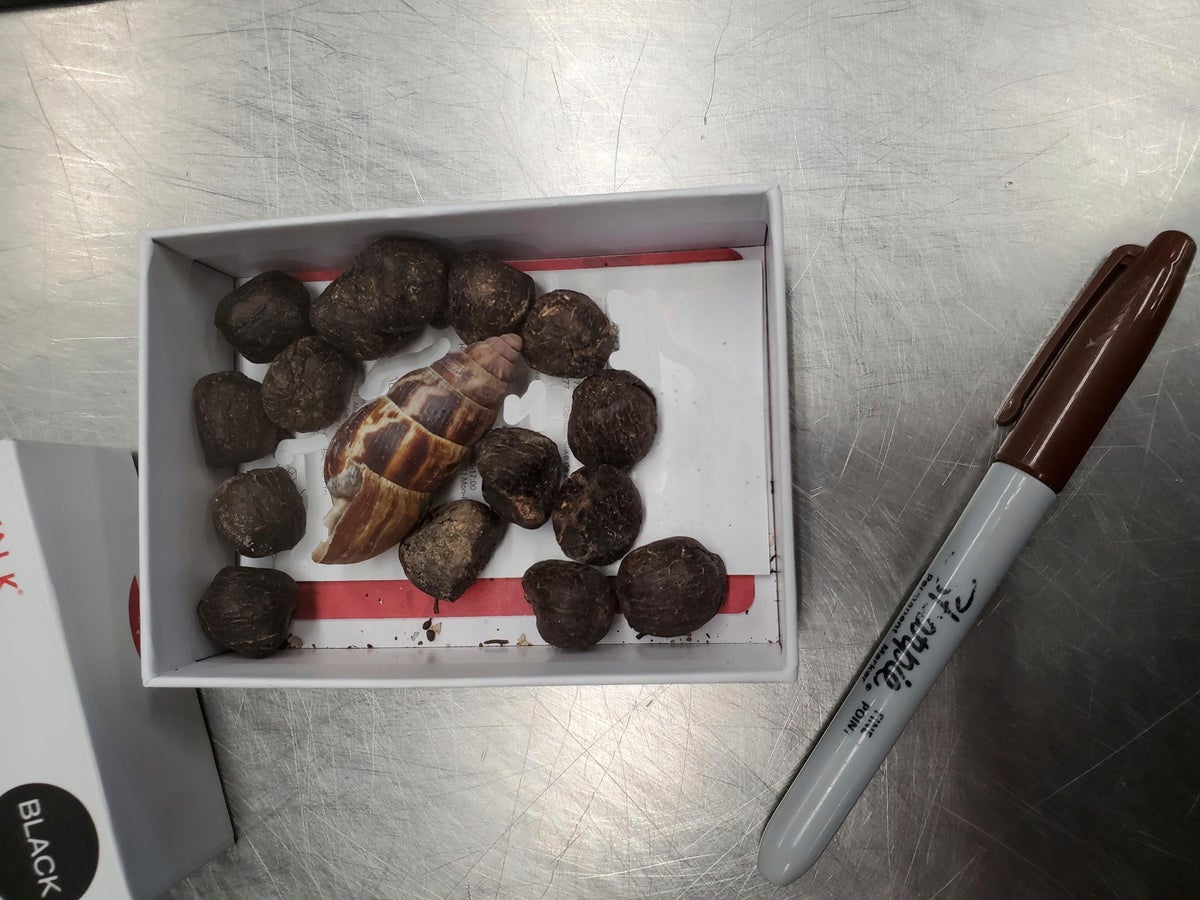
A surprise greeted federal customs agents at Minneapolis-Saint Paul Airport when they opened a passenger’s luggage — and were confronted by a box of giraffe faeces.
This bizarre item was declared by a woman when she was picked to have her belongings inspected after she had returned to the US from Kenya on 29 September, Customs and Border Protection (CBP) officials said.
The Iowa woman also declared her unusual reasons for keeping the exotic excrement with her: to dabble in a bit of DIY.
The desired end product? A necklace.
She also told them that she had made another necklace in the past, but that time with poo from an American animal. A moose.
Giraffe faeces can be legally bought into the US with appropriate licencing and inspections, according to Minnesota Public Radio. Meanwhile, the American Association of Zoo Veterinarians said a permit is usually required for faeces retrieval.
The radio station added that the woman won’t face any sanctions as she had declared her poo package to customs agents. She could have faced a penalty of $300 to $1000 if she had not, CBS reported.
The necklace could have caused its wearer to develop health issues— (Getty Images)
“There is a real danger with bringing fecal matter into the U.S.,” Customs and Border Protection’s Chicago field Director LaFonda D. Sutton-Burke said in a statement. “If this person had entered the U.S. and had not declared these items, there is high possibility a person could have contracted a disease from this jewelry and developed serious health issues.”
African swine fever, classical swine fever, Newcastle disease, foot-and-mouth disease and swine vesicular disease — all found in Kenya — are possible risks, customs officials added, adding that the faeces have since been destroyed by CBP agriculture specialists.
“CBP’s agriculture specialists mitigate the threat of non-native pests, diseases, and contaminants entering the United States,” said Augustine Moore, CBP Area Port Director-Minnesota, adding that they “have extensive training and experience in the biological and agriculture sciences” and “inspect travellers and cargo arriving in the United States by air, land, and seaports of entry.”







